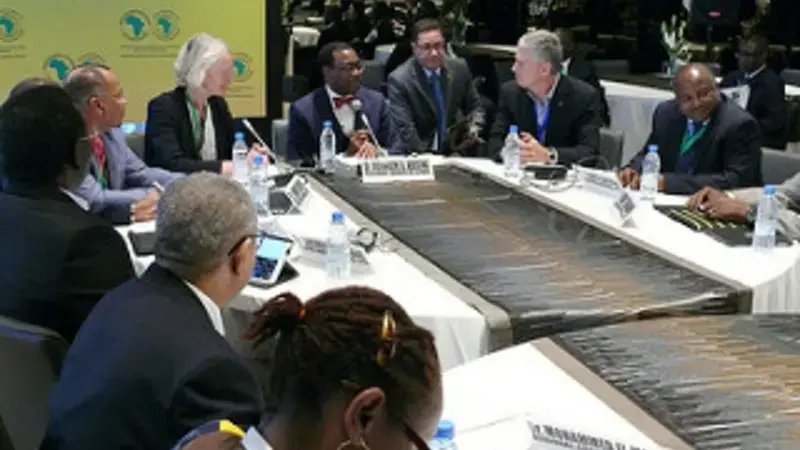AfDB Initiative on Transformation of Agriculture in Africa

ICARDA and International Maize and Wheat Improvement Center (CIMMYT) proposed a ‘Wheat for Africa’ initiative at a high-level conference on agricultural transformation in Dakar, Senegal, 21-23 October 2015, which was attended by more than 500 participants, including Ministers of Economy, Finance and Agriculture, Governors of Central Banks, representatives of regional and international organizations, civil society and private sector. ICARDA’s Board Chair at that time, Dr. Camila Toulmin, was also present.
‘Wheat for Africa’ proposes to increase Africa’s wheat food and nutritional security through enhanced domestic production by 2025. It includes eight initiatives - one on policy, one on institutional strengthening and six on consolidating commodity focused value chains on wheat, rice, maize, root and tubers, dairy, and livestock. “These measures are expected to enhance sustainable dissemination and scaling-up of best-bet wheat based technologies using an innovative platform approach along the value chain with continent-coverage,” said Dr. Solomon Assefa, representing ICARDA at the conference along with Drs. Seid Silim and Mohammed El Mourid.
This multi-stakeholder initiative, which is tailored to address the main agro-ecosystems of Africa, includes various actors involved in the wheat value chain (farm to fork) and will strengthen the capacities of value-chain actors through need-based training and skill development, reinforcing institutional capacity and promoting continental and sub-regional networks. It builds on the on-going success stories and achievements made through SARD-SC wheat project and other past experiences.
Joint research studies conducted by ICARDA and partner organizations like CIMMYT across the African continent have led to the development of high yielding, heat tolerant and disease resistant cultivars that, combined with climate smart wheat based technologies and innovations, yield 5-7 t/ha in farmers’ field which is significantly higher than 1-2 t/ha average of traditional varieties. In particular, the generation of heat tolerant and climate smart high yielding technologies is opening the way to expand irrigated wheat into the vast and heat-stressed Sahel Dryland agro-ecology of Africa.
